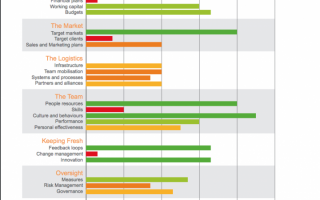12.5 million days were lost due to
work related stress, depression or anxiety in 2016/17. This leads many people
to believe that all stress is bad for you. This, however, is not true. Stress
is not always a bad thing - it can actually be motivational. Have you had that
surge of adrenaline when a piece of work has to be submitted before a deadline?
That’s stress. However, it’s a specific type of stress called ‘Eustress.’
The term ‘Eustress’ means beneficial
stress. The term was coined by endocrinologist Hans Selyne, utilising the Greek
prefix eu – meaning “good,” so it literally means “good stress.” This type of
stress gives us a burst of energy, improves our performance and feels exciting.
However, there’s a tipping point and too much stress will take us out of the
“eustress” zone and into “distress.”
It’s important we keep ourselves in
the “eustress” zone and out of “distress.” The good news is that this is
completely within our control, and even better news is that it’s relatively
easy to do with consistent repetition of specific behaviours. Repetition is key
here; we need to perform the same behaviours, consistently over time, to build
up resilience building habits.
Habits can be formed to help us build
resilience (and therefore protect us from distress) in 3 areas: the body, mind
and environment. The 6 tips below will all make a huge difference to your resilience
at work. Pick one tip from each section, do it consistently for 30 days and I
promise you will see a difference.
1)
Building Resilience in the Body
Walking –
New research suggests that 10,000 steps a day is not the holy grail that we
should be aiming for. Instead, it’s been found to be more beneficial to take
part in ‘Active 10’. This is where you undertake 3 brisk 10-minute walks a day.
Walking helps reduce stress by putting you in a meditative state and freeing
you from negative thoughts. It also boosts endorphins, reduces fatigue,
improves sleep and even sharpens your memory!
Water - During
times of stress we can forget to drink, studies have shown that being just half
a litre dehydrated can increase your cortisol levels (the stress hormone). Drink
8 glasses of water a day and see the difference it can make.
2)
Building Resilience in the Mind
Meditation
– There is now a wealth of studies available that demonstrate how a regular meditation
habit can help protect us from stress. If you have constant, racing thoughts and
struggle to switch off that negative voice in your head, then just 10 minutes
of meditation a day can transform and calm your mind. Try a guided meditation
app such as Headspace or Insight Timer which will teach you how to mediate.
Gratitude
– A positive attitude can protect us from a downward spiral that’s triggered by
a stressful event. The good news is that a positive attitude can be cultivated.
One of the best ways to increase your positivity is by practising gratitude. A
nightly practice that I do with my 7-year-old daughter, where we recap 3 things
that have happened that day that we are grateful for. The difference it makes
to your mindset is huge.
3)
Creating a Resilient Environment
Distraction free time – How often have you had the feeling that you’ve
been busy all day at the office but haven’t done any work? This is often
because the workplace is a hugely distracting environment. One study revealed
that the average employee spends 28% of their time dealing with unnecessary
interruptions. This can be hugely stressful as it impacts our productivity. If
your workplace is distracting then try to find a way you can get some regular
uninterrupted time: work from home, in a meeting room or a coffee shop. If your
workplace doesn’t support this then maybe you should find one that does!
Cut the junk
– Try to encourage work colleagues to banish sugar; it’s what body craves sugar
when stressed, and due to the way sugar is processed in the body the more you
eat the more you crave! A recent study described office “cake culture” as a
health hazard that’s fuelling the obesity crisis. It’s not about banning fun
from the workplace, it’s about finding other ways to celebrate that will keep
us in ‘eustress’ and not send us into ‘distress.’
The tips above are proven ways to keep
us away from the “distress zone.” They work for 100% of the people, 100% of the
time……IF you practise the habit consistently!




